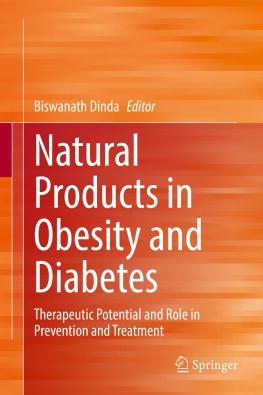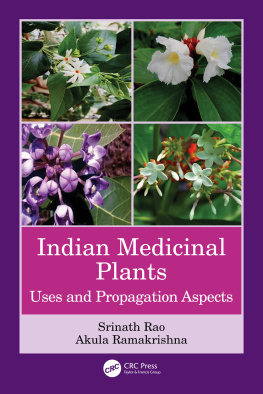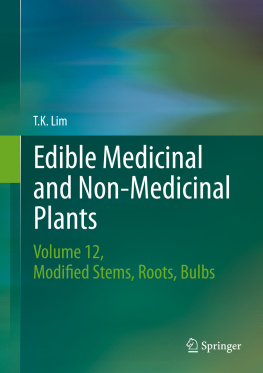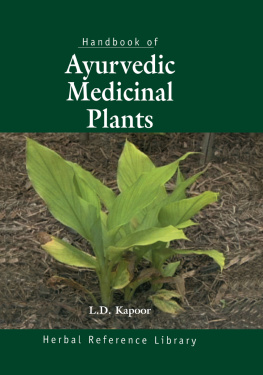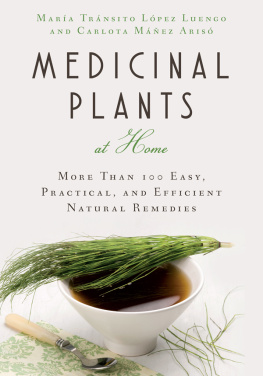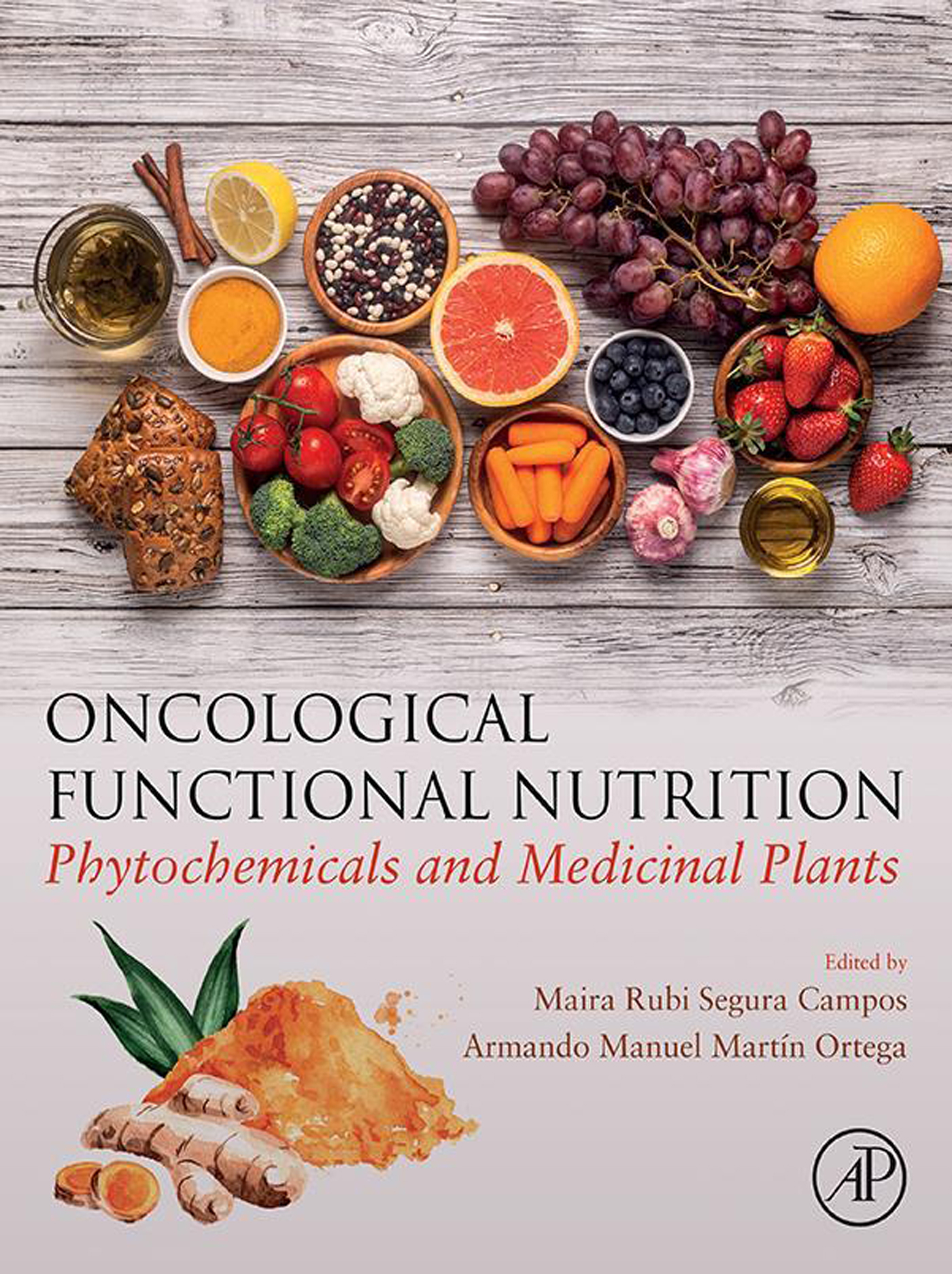Table of Contents
List of tables
- Tables in Chapter 2
- Tables in Chapter 4
- Tables in Chapter 5
List of illustrations
- Figures in Chapter 2
- Figures in Chapter 4
- Figures in Chapter 5
Landmarks
Table of Contents
Oncological Functional Nutrition
Phytochemicals and Medicinal Plants
Edited by
Maira Rubi Segura Campos
Food Science Laboratory, Chemical Engineering Faculty, Universidad Autonoma de Yucatan, Mrida, Mexico
Armando Manuel Martin Ortega
Universidad Autonoma de Yucatan, Mrida, Mexico

Copyright
Academic Press is an imprint of Elsevier
125 London Wall, London EC2Y 5AS, United Kingdom
525 B Street, Suite 1650, San Diego, CA 92101, United States
50 Hampshire Street, 5th Floor, Cambridge, MA 02139, United States
The Boulevard, Langford Lane, Kidlington, Oxford OX5 1GB, United Kingdom
Copyright 2021 Elsevier Inc. All rights reserved.
No part of this publication may be reproduced or transmitted in any form or by any means, electronic or mechanical, including photocopying, recording, or any information storage and retrieval system, without permission in writing from the publisher. Details on how to seek permission, further information about the Publishers permissions policies and our arrangements with organizations such as the Copyright Clearance Center and the Copyright Licensing Agency, can be found at our website: www.elsevier.com/permissions.
This book and the individual contributions contained in it are protected under copyright by the Publisher (other than as may be noted herein).
Notices
Knowledge and best practice in this field are constantly changing. As new research and experience broaden our understanding, changes in research methods, professional practices, or medical treatment may become necessary.
Practitioners and researchers must always rely on their own experience and knowledge in evaluating and using any information, methods, compounds, or experiments described herein. In using such information or methods they should be mindful of their own safety and the safety of others, including parties for whom they have a professional responsibility.
To the fullest extent of the law, neither the Publisher nor the authors, contributors, or editors, assume any liability for any injury and/or damage to persons or property as a matter of products liability, negligence or otherwise, or from any use or operation of any methods, products, instructions, or ideas contained in the material herein.
British Library Cataloguing-in-Publication Data
A catalogue record for this book is available from the British Library
Library of Congress Cataloging-in-Publication Data
A catalog record for this book is available from the Library of Congress
ISBN: 978-0-12-819828-5
For Information on all Academic Press publications visit our website at https://www.elsevier.com/books-and-journals
Publisher: Charlotte Cockle
Acquisitions Editor: Megan Ball
Editorial Project Manager: Devlin Person
Production Project Manager: Paul Prasad Chandramohan
Cover Designer: Matthew Limbert
Typeset by MPS Limited, Chennai, India

List of contributors
M.R. Segura Campos , Facultad de Ingeniera Qumica, Universidad Autnoma de Yucatn, Mrida, Mxico
J.R. Caamala Cauich , Facultad de Medicina, Universidad Autnoma de Yucatn, Mrida, Mxico
D. Chamorro-Plata , Escuela de Medicina, Universidad Anhuac-Mayab, Mxico
G.R. Fajardo-Ordua , FES Zaragoza, Universidad Nacional Autonoma de Mxico, Mxico
Yelda A. Leal , Centro Institucional de Capacitacion y Registro de Cancer (CICyRC), Unidad Medica de Alta Especialidad (UMAE) del Instituto Mexicano del Seguro Social (IMSS), Merida Yucatan, Mexico
L.A. Victoria Monroy , Facultad de Medicina, Universidad Autnoma de Yucatn, Mrida, Mxico
A.M. Martn Ortega
Facultad de Medicina, Universidad Autnoma de Yucatn, Mrida, Mxico
Facultad de Ingeniera Qumica, Universidad Autnoma de Yucatn, Mrida, Mxico
Chapter 1
Cancer epidemiology
Yelda A. Leal, Centro Institucional de Capacitacion y Registro de Cancer (CICyRC), Unidad Medica de Alta Especialidad (UMAE) del Instituto Mexicano del Seguro Social (IMSS), Merida Yucatan, Mexico
Abstract
The increasing number of cancer cases observed in the last decades is due in part to the epidemiological transition that has occurred in recent year as cancer has, become a global health problem, with 18.1 million new cases, 9.6 million of death related to cancer, in 2018. Several epidemiological studies have documented exogenous and endogenous factors that can influence cancer risks, such as chronic infection, genetic background, lifestyles, and obesity. Both cancer and obesity have convergence points; since the World Health Organization reported around 3.9% of total global burden cancer was attributable to excess body weight. Therefore it is necessary to join efforts for the control and prevention of both of these noncommunicable diseases.
Keywords
Cancer; control; epidemiology; noncommunicable disease; obesity; prevention
1.1 Introduction
).
Worldwide changes in the epidemiological profile of overweight and obesity haves been observed in the last decades; the convergence of these two chronic diseases can further exacerbate the health problem (). Furthermore, it is important to know and reduce the associated modifiable factors. The aim of this chapter is to review the epidemiological behavior of cancer among the geographical areas and the convergence of cancer and obesity that have increased significantly in the last decades, as well as to describe the factors related to cancer, emphasizing exogenous and endogenous exposure and the distribution of the protective and risk factors according to the affected site of the human body.
1.2 Theoretical framework
1.2.1 Global cancer epidemiology
Epidemiology is a science that provides many tools to study the causes and effects of diseases, find means of prevention and control, and aid in generating new ideas and hypotheses. Cancer epidemiology is the branch of epidemiology concerned with the disease of cancer; in this sense, cancer epidemiology and epidemiology in general, are based on the comparison of groups of people, because the epidemiological studies are concerned not only with the people who get a disease, but also with those who do not, and in particular with how these two groups may differ. Therefore the primary units of concern are groups of people, not separate individuals; this is what differentiates epidemiology from clinical medicine. Thus epidemiology is concerned with events that occur in populations. In particular, cancer epidemiology is concerned with the study of the distribution of cancer in populations. Its goal to identify risk factors that may point toward the early introduction of effective preventive measures ().


